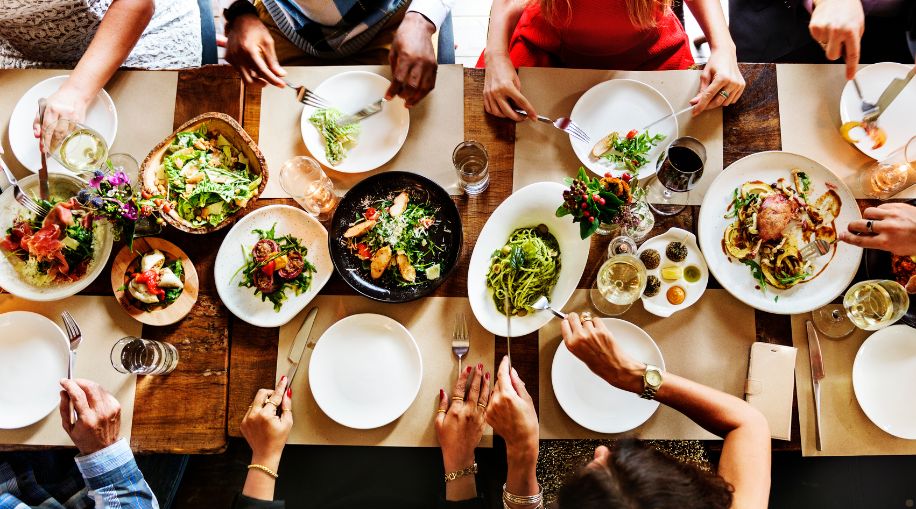Avoid These Dishes for Safe Sailing
With endless dining options available on board and at ports of call, food is often one of the highlights of the journey. However, not all options are created equal. Choosing the wrong foods can lead to discomfort, illness or missed activities, which no traveler wants. To ensure smooth sailing, here’s a guide to foods you should avoid while cruising.
1. Raw or Undercooked Seafood
Fresh seafood is often a highlight of cruise dining, with sushi, sashimi and raw oysters being popular choices. However, these items come with a high risk of foodborne illnesses, such as norovirus or other gastrointestinal infections. Instead, pick cooked seafood dishes like grilled fish or steamed shellfish to enjoy the flavors without the potential health concerns.
2. Buffet Items That Look Questionable
Buffets are a signature feature on most cruises, offering a vast array of dishes. However, food left sitting out too long can become a breeding ground for bacteria. Avoid items that don’t appear fresh or hot, especially dishes containing dairy, eggs or seafood. Prioritize freshly prepared items or those served at live cooking stations for a safer dining experience.
3. Unfamiliar Foods
While trying new cuisines is part of the adventure, diving into unfamiliar dishes on a cruise might not be the best idea—especially if you have a sensitive stomach. New spices, unfamiliar ingredients or preparation methods could lead to indigestion or an upset stomach. It’s wise to try small portions first and gauge how your body reacts before indulging further.
4. Heavy, Greasy Foods
From fried appetizers to rich desserts, cruise menus are often loaded with indulgent options. While tempting, consuming large amounts of greasy foods can leave you feeling lethargic or cause digestive discomfort. Since cruises often involve active excursions or poolside relaxation, it’s best to avoid foods that might weigh you down. Enjoy fried or rich dishes sparingly and balance them with lighter options like salads, grilled proteins and fresh fruits.
5. Foods That Are Too Salty
Processed snacks, cured meats and salty soups can lead to dehydration, especially when paired with alcohol or long hours under the sun. Cruises often involve outdoor activities and tropical climates, making hydration essential. Reduce your intake of high-sodium foods and drink plenty of water to stay refreshed and avoid bloating.
6. Ice Cream and Desserts Sitting Out
Desserts are a sweet treat on cruises, but soft-serve ice cream and buffet cakes left at room temperature for extended periods can pose a risk. Bacteria thrive in warm, sugary environments, so choose freshly served or chilled desserts. If you’re craving ice cream, opt for individually packaged options or order from a specialty dessert station.
7. Fresh Produce from Unverified Sources
While cruise ships prioritize cleanliness and food safety, produce served in ports or from street vendors may not meet the same standards. Fresh fruits and vegetables that haven’t been properly washed or peeled can carry bacteria or pesticides. If you’re tempted by local produce, ensure it’s washed thoroughly or stick to cooked options.
8. Dairy Products Left Unrefrigerated
Dairy-based items like cheese platters, creamy dips or milk-based desserts can spoil quickly if left out of refrigeration. If these items are sitting out at a buffet or outdoor event, it’s better to avoid them. Choose freshly prepared dairy dishes served in temperature-controlled environments to minimize risks.
9. Food from Ports with Unfamiliar Hygiene Standards
Sampling local cuisine is a highlight of visiting new ports, but not all food vendors maintain the same hygiene standards. Street food, raw seafood or dishes from questionable establishments can increase the risk of foodborne illnesses. Stick to well-reviewed restaurants or eateries recommended by your cruise line, and avoid eating raw or undercooked items off the ship.
10. Excessive Alcohol
Cruises often offer unlimited drink packages, and it’s easy to overindulge. Consuming too much alcohol can lead to dehydration, worsen seasickness and lower your immune defenses. Balance alcoholic beverages with water or hydrating drinks to maintain your energy levels and health throughout your trip.
